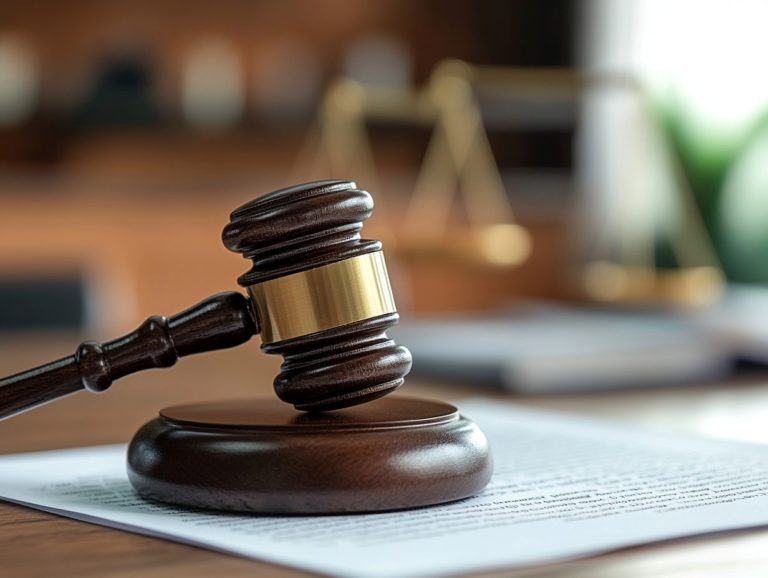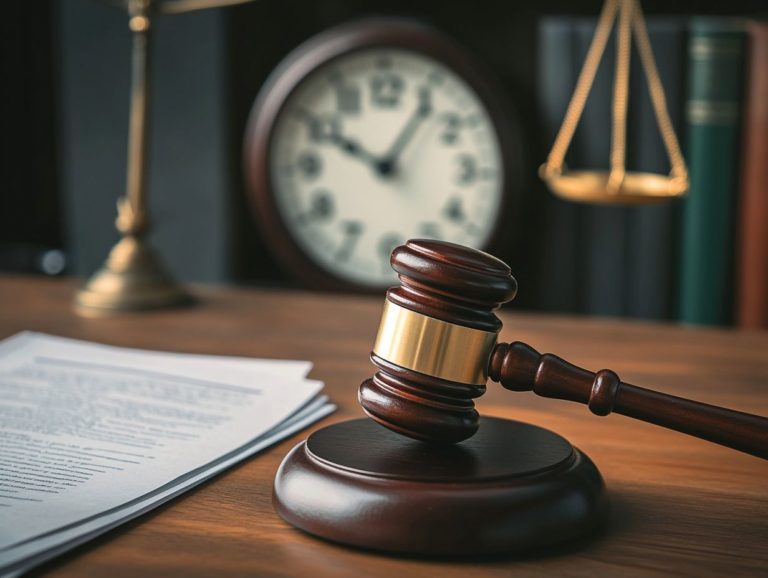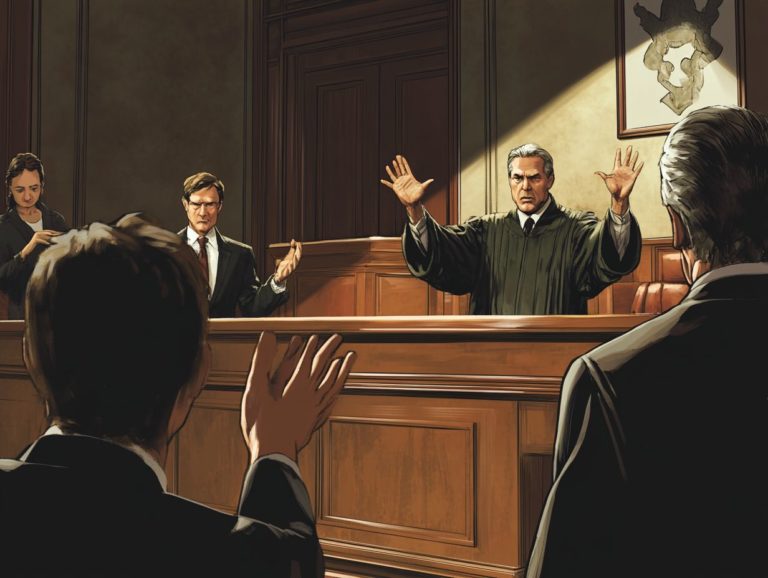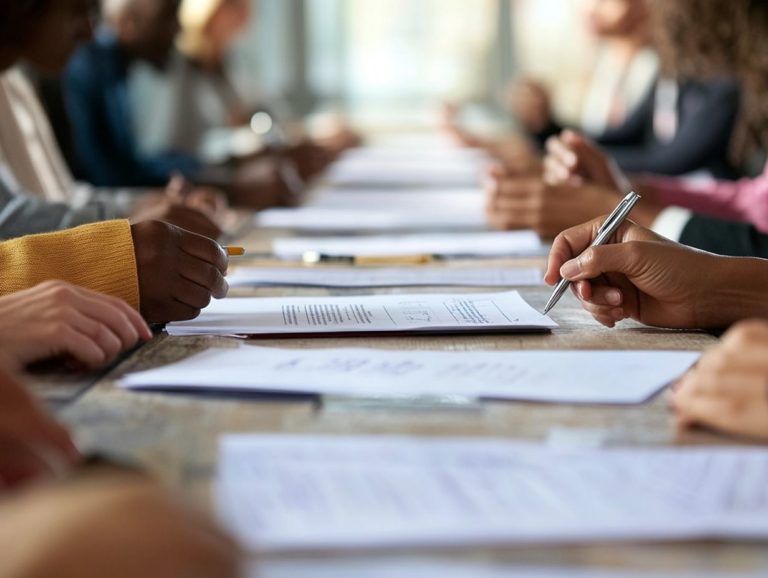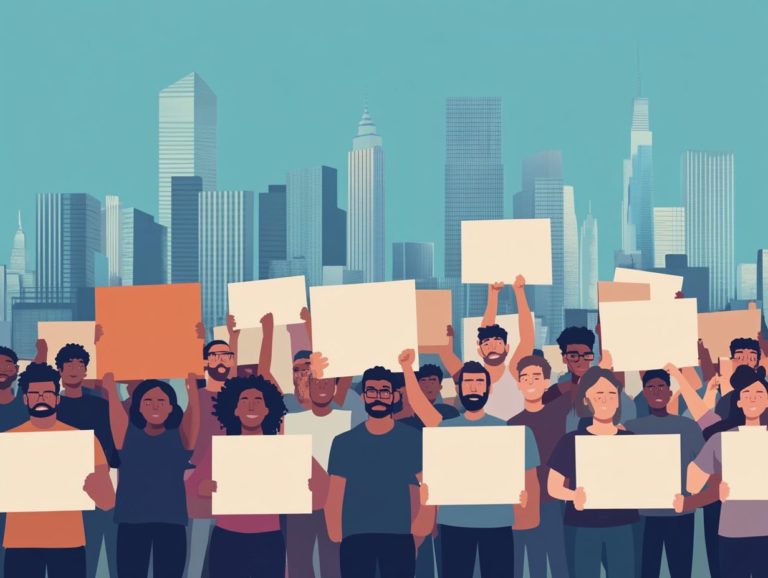5 Things You Must Know About Your Rights
Understanding your rights is essential for thriving in a just society. Whether you’re handling everyday situations or confronting legal challenges, knowing what you’re entitled to empowers you to advocate for yourself and others effectively.
This article explores your rights as a citizen, detailing how they are protected, the potential limits that may apply, and the steps to take if they are violated.
Being informed is crucial for your protection don t wait! Explore this journey to gain clarity and confidence in understanding your rights.
Contents
Key Takeaways:
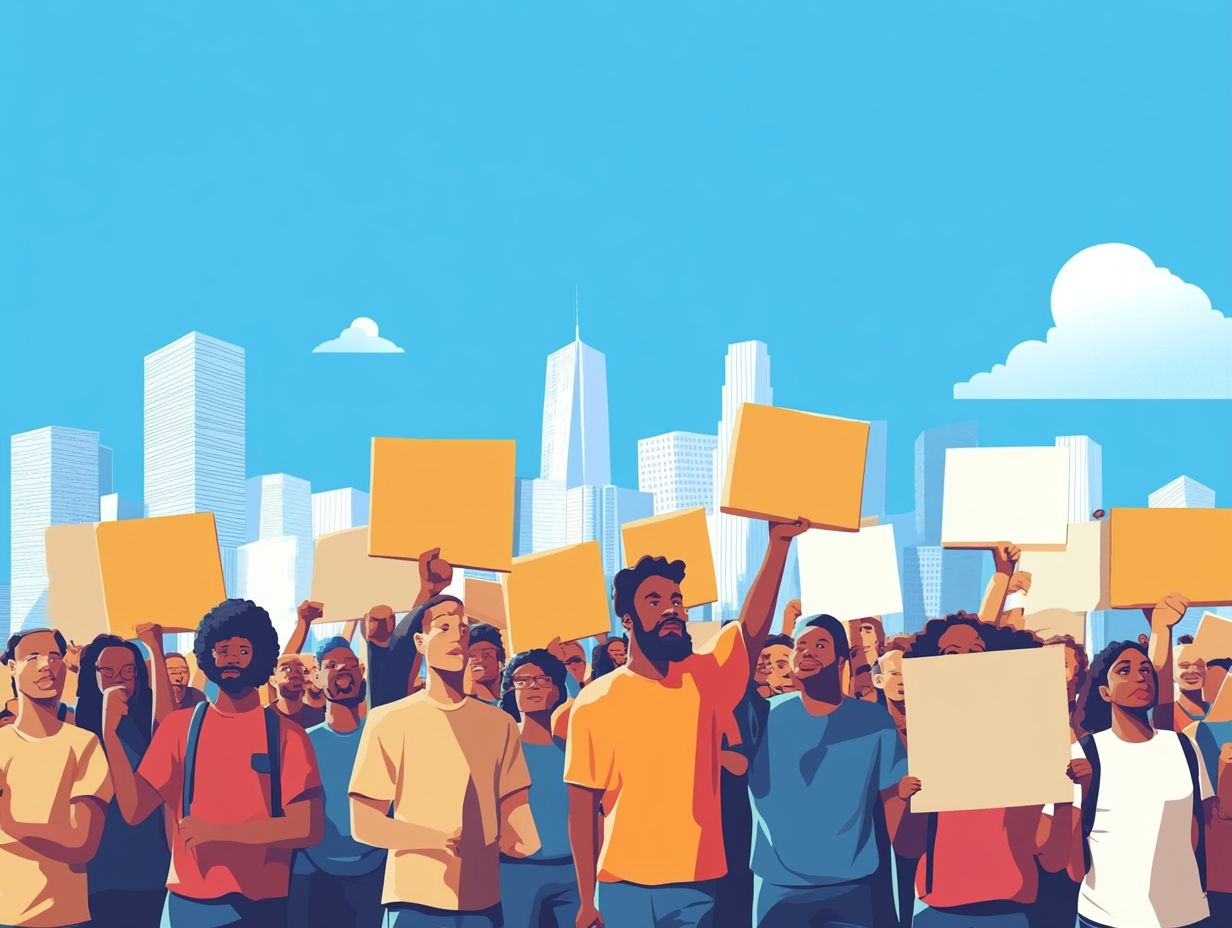
Knowing your rights as a citizen is crucial for protecting yourself and others. Rights violations can happen in various forms, so it’s important to know how to address them. Educate yourself on your rights and the different types of rights to better advocate for yourself and others.
1. Your Rights as a Citizen
As a citizen of the United States, grasping your legal and civil rights as laid out in the U.S. Constitution is essential. This foundational document offers a broad spectrum of protections from voting rights and educational access to specific safeguards for marginalized communities, including the LGBTQ community and individuals with federal disabilities.
These rights ensure equal treatment under the law, protecting you from discrimination and harassment.
The Fifth and Fourth Amendments play a significant role in safeguarding you from unreasonable searches and seizures by law enforcement. The Fourth Amendment, in particular, acts as a barrier against invasive police actions, ensuring that authorities must have just cause and a warrant before infringing upon your personal privacy.
This principle extends into different parts of your life. In education, for instance, you deserve a safe and equitable environment where your rights are respected. In housing, fair practices work to prevent discrimination, ensuring you can find a home without fear of bias.
Job security laws protect you from unfair termination and discrimination in the workplace, fostering an atmosphere of equality and justice that is the bedrock of American democracy.
2. How Your Rights Are Protected
Your rights are firmly safeguarded by various laws and amendments in the U.S. Constitution. This includes the rights you have when arrested known as Miranda Rights which ensure you are informed of your rights during police custody, as well as civil rights laws that uphold justice and equality in the judicial process.
In this landscape, law enforcement acts as both protectors and enforcers of legal standards. They are responsible for ensuring that you receive fair treatment, irrespective of your race, gender, or background.
The importance of legal assistance cannot be overstated; it acts as a beacon as you navigate the often intricate judicial system. Civil rights laws tirelessly work to shield against discrimination, enabling you to challenge injustices and hold those in power accountable.
This framework reinforces your legal rights while cultivating a society where equality and justice can flourish.
3. Limits to Your Rights
While individual rights are fundamentally important, it’s vital to recognize that limits exist, shaped by legal responsibilities and the necessity of public safety. This includes restrictions related to immigration laws and lawful police searches, which can occasionally lead to rights violations.
These limitations are not arbitrary; they serve a greater purpose, often aimed at ensuring community safety and security. When law enforcement conducts searches without a warrant, their intent is usually to prevent criminal activities and protect citizens. However, this practice can inadvertently infringe upon an individual’s privacy rights.
Similarly, immigration laws that prioritize national security can sometimes lead to racial profiling, creating a delicate tension between ensuring public safety and upholding the dignity and rights of all individuals. It s a nuanced balancing act where the implications of legal statutes must continuously be weighed against the preservation of personal freedoms.
Learn more about your rights today to empower yourself!
4. What to Do If Your Rights Are Violated
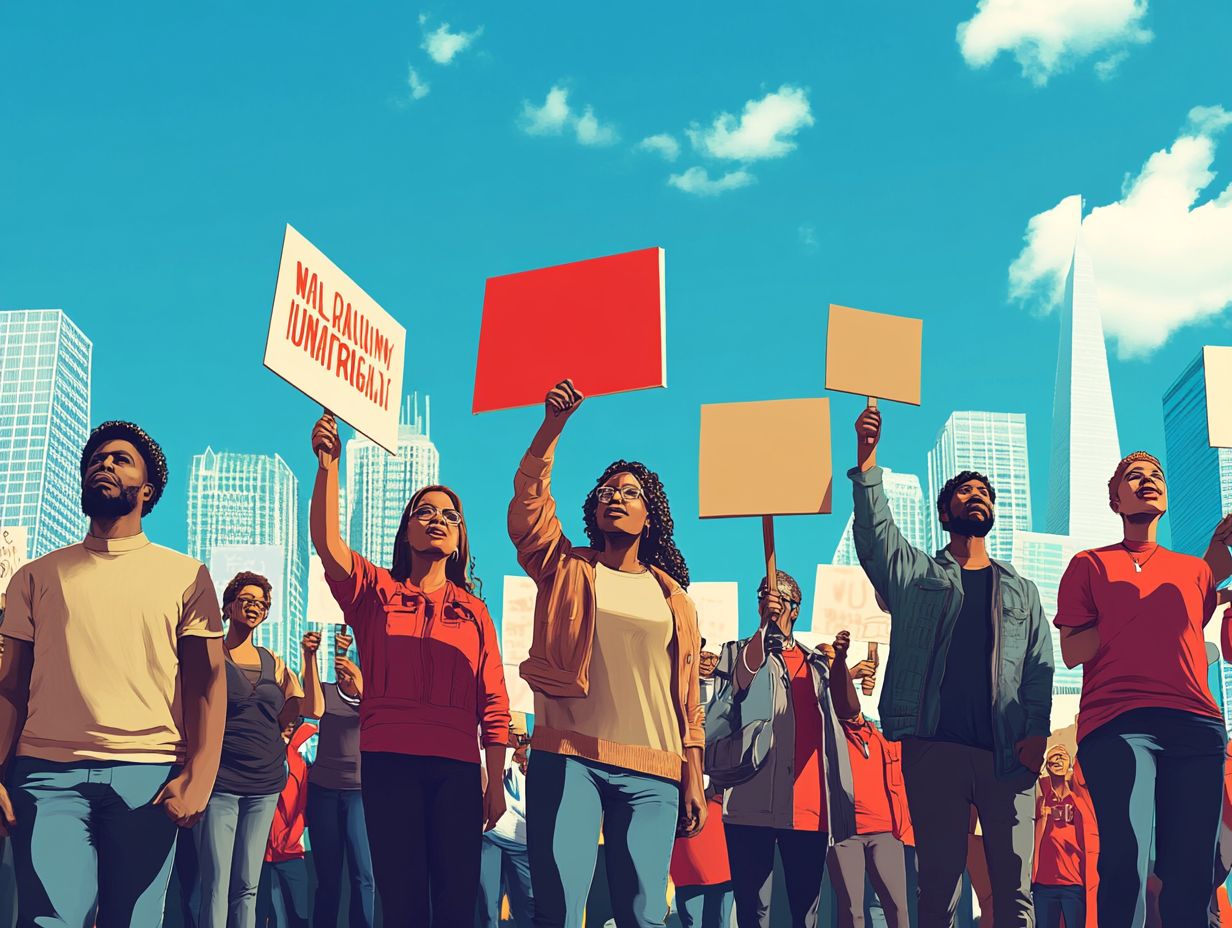
If you suspect your rights have been violated, you must seek legal advice immediately! Don t forget to tap into support services that help individuals facing harassment or discrimination.
Understanding your rights is the vital first step in this journey. Start by documenting any incidents note the dates, times, witnesses, and details.
This information is essential when you pursue your case.
Once you ve gathered the details, reach out for legal counsel to help you understand your situation better. Many individuals find immense value in connecting with organizations like Citizens Advice or local community services, which offer essential resources and guidance.
These entities illuminate your rights and provide emotional support, ensuring you feel enabled and informed as you take the necessary steps forward.
5. The Importance of Knowing Your Rights
Understanding your rights is crucial for safeguarding yourself against discrimination and legal issues. It enables you to navigate the judicial process, grasp your civil rights, and advocate effectively for your educational and voting rights.
When young individuals, in particular, lack awareness of their rights, they encounter serious hurdles that can stifle their ability to express themselves, engage in civic duties, or seek justice when wronged.
The repercussions of such ignorance can be serious, often trapping individuals in a cycle of oppression and exploitation. Many resources and educational initiatives are now available to tackle this issue, striving to illuminate communities about rights awareness.
Programs in schools and local organizations frequently offer workshops and materials designed specifically for young audiences, creating an environment where you can learn to stand up for yourself and others.
This underscores the vital role that knowledge plays in protecting personal freedoms.
What Are Human Rights and Why Are They Important?
Human rights are essential rights and freedoms that belong to you, forming the bedrock of civil and community rights. They protect against injustices and promote equality within society.
These rights are not confined by borders or cultures; they establish a universal standard that shields you from discrimination based on race, gender, or belief systems. Legally, they provide a framework for justice, shaping both national laws and international treaties.
Socially, these rights cultivate an environment where diversity is celebrated and cultural differences are embraced. There is a global consensus on their significance, underscoring humanity’s shared responsibility to uphold these principles.
This ensures that you and others can lead dignified lives, free from oppression and violence.
What Are the Different Types of Rights?
Several types of rights are important to know, including civil rights, which protect you from unfair treatment; legal rights, which ensure you are treated justly under the law; and community rights, which encompass vital educational and voting rights essential for your civic engagement.
Civil rights, such as your right to free speech and freedom from race-based discrimination, enable you to participate fully in society without the shadow of prejudice. In contrast, legal rights pertain to specific protections, like your right to a fair trial.
Community rights ensure you have access to essential services, such as quality education and the ability to vote, directly connecting to your civic responsibilities. Each category plays a pivotal role in promoting fairness and justice, creating a balanced framework where every voice is heard and valued.
How Can One Educate Themselves on Their Rights?
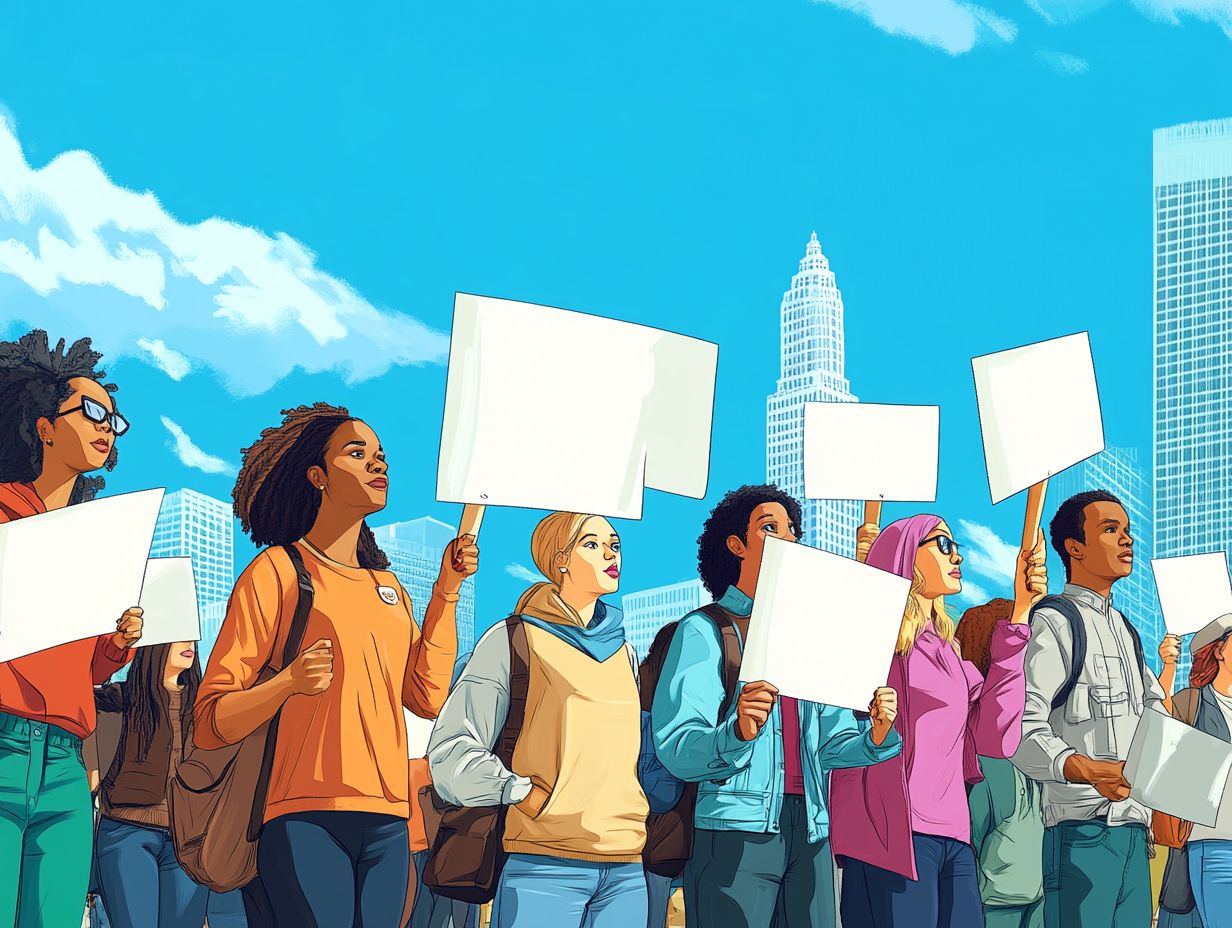
Educating yourself about your rights is crucial for empowerment. There are numerous avenues available to achieve this. You can tap into community resources, seek legal advice, or participate in programs designed to raise awareness about rights among citizens.
To deepen your understanding, consider attending workshops focused on civil rights. These sessions offer hands-on experience and insights from experts in the field, making complex topics more accessible.
Online resources, such as webinars and informative websites, can also provide valuable perspectives on intricate legal matters. Engaging with local organizations that advocate for rights allows you to connect with like-minded individuals, broadening your knowledge while fostering a sense of community and solidarity.
By actively participating in discussions and volunteering for advocacy efforts, you learn and join a larger movement for social change.
Common Rights Violations You Should Know
Common examples of rights violations include discrimination in employment, harassment based on immigration status, and unlawful police searches that infringe upon your legal rights as guaranteed by the U.S. Constitution.
These violations can manifest in various ways. Unjust treatment in hiring practices often disproportionately affects marginalized groups. Additionally, aggressive profiling by law enforcement can instill fear in entire communities.
The consequences are significant. For instance, a worker denied a promotion solely based on their ethnicity faces economic hardship and a blow to their self-worth.
Similarly, families living under the constant threat of deportation endure not just emotional turmoil but also instability that impacts education and disrupts community cohesion.
Unwarranted police searches violate personal security, breeding mistrust between citizens and law enforcement and ultimately undermining the very fabric of society.
What Are the Consequences of Not Exercising Your Rights?
Not standing up for your rights can create serious legal problems. You leave yourself vulnerable to violations and lack representation in the judicial process, which undermines both community rights and public safety.
When you hesitate to assert your rights, the repercussions resonate throughout entire communities. If you hold back from reporting workplace discrimination out of fear of retaliation, you not only suffer personally but also contribute to a culture of silence that enables employers to continue harmful practices.
If communities don t stand up for their voting rights, they risk diminishing political representation, resulting in policies that fail to address their actual needs.
These examples highlight the urgent need to proactively assert rights, reinforcing collective strength, and fostering a more just society for everyone.
How Can One Advocate for Their Rights and the Rights of Others?
Speaking up for your rights and the rights of others requires a proactive mindset. It s about raising awareness, engaging with support services, and, when necessary, taking legal action to challenge injustices.
By actively participating in community organizing efforts, you re not just a voice in the crowd; you re building a network of support that amplifies your impact. This collaboration can manifest in local initiatives like town hall meetings or neighborhood advocacy groups, where awareness is cultivated, and collective action is sparked.
Partnering with legal organizations can significantly bolster your efforts, as they often provide invaluable resources and expertise.
For inspiration, think about the powerful stories of individuals who have successfully rallied their communities to combat discrimination or advocate for environmental justice. These examples show that meaningful change is attainable through shared commitment and action.
Your Top Questions Answered!
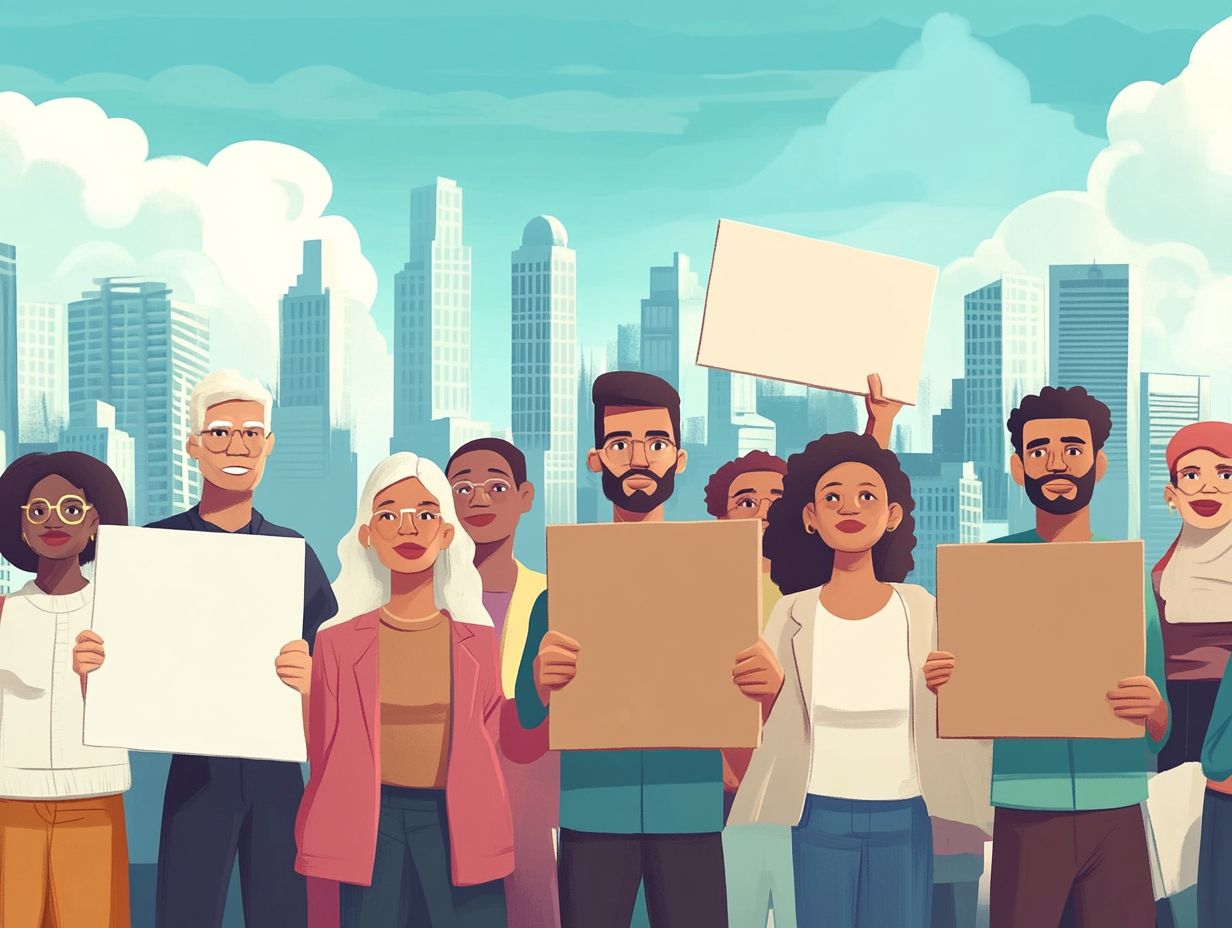
What are the 5 things you must know about your rights?
The 5 things you must know about your rights are:
- Your fundamental rights
- The limitations of your rights
- How to exercise your rights
- Your rights in specific situations
- How to seek help if your rights are violated
Why is it important to know about your rights?
Knowing your rights empowers you to protect yourself and stand up for what is right. It also helps you understand the limits of acceptable behavior and seek justice if your rights are violated.
What are fundamental rights?
Fundamental rights are basic rights that everyone has, recognized and protected by law. These include freedom of speech, religion, peaceful assembly, equal treatment, and the right to a fair trial.
What are the limitations of your rights?
While you can exercise your rights, certain limitations apply. Your rights may be restricted if they infringe on the rights of others or threaten public safety. There might also be legal restrictions to consider.
How can you exercise your rights?
You can exercise your rights by being aware of them and asserting them when necessary. This means standing up for yourself or others, speaking out against injustice, or seeking legal assistance. Always exercise your rights with care and respect!
What should you do if your rights are violated?
If your rights are violated, seek help from a trusted source like a lawyer, law enforcement, or a human rights organization. Document the violation immediately to protect your rights! Gather evidence and understand your legal options.

